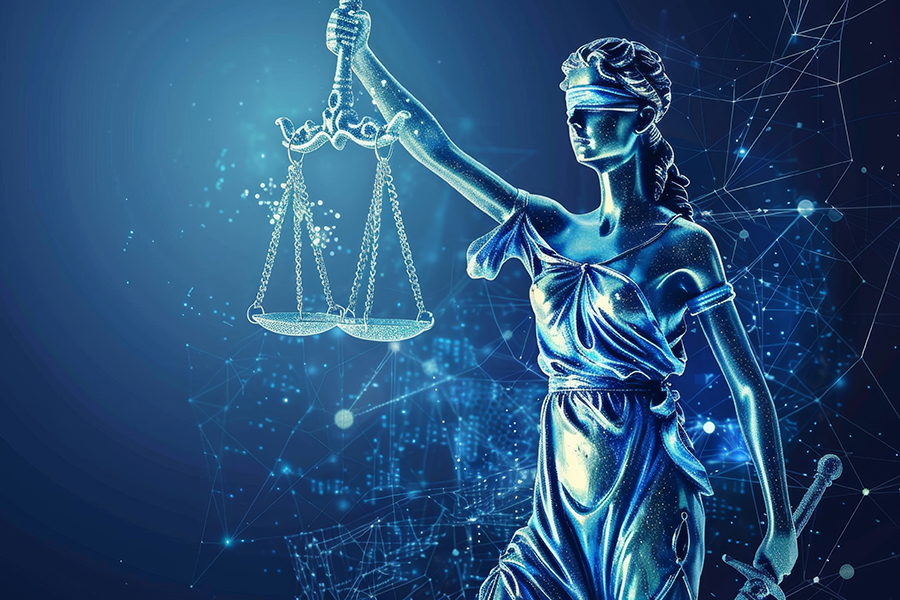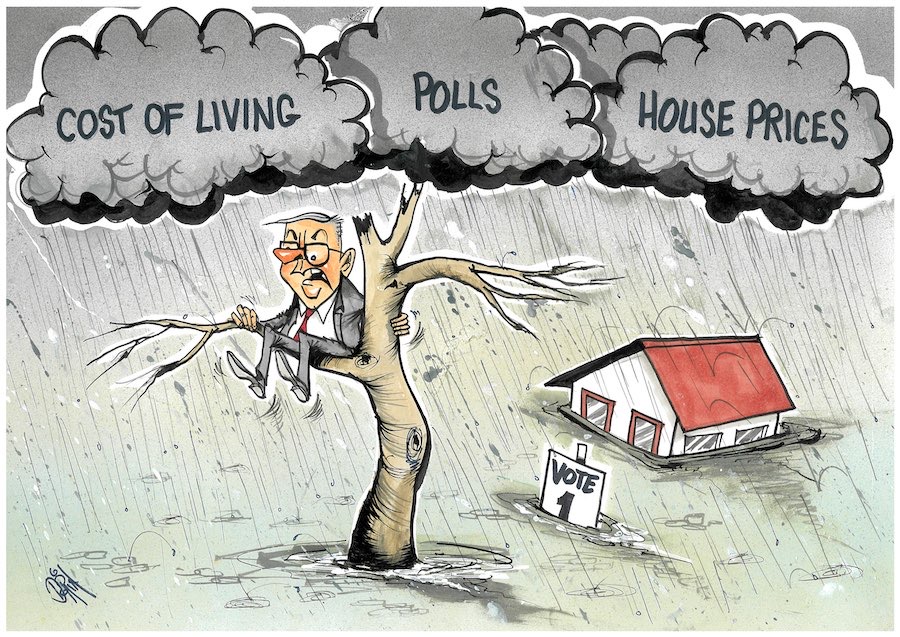
Lawyers in NSW are now banned from using AI to create crucial evidence papers and judges cannot use AI to formulate reasons for judgments. Legal columnist HUGH SELBY imagines a different world, where justice is as easy as popping into an AI Justice Hub.
The bus trip was uneventful. At Jolimont I entered the passenger code at the bus door to gain entry, sat down, was immediately restrained by the auto protection cage, sipped the tasty cocktail with my name on it and woke up as we arrived in Sydney.

No stress, no hangover, so sweet.
I wanted to look in on the popular AI Justice Hub before getting to the court hearing. It’s where the State Tribunal used to be, that’s the tribunal that saw its workload halve and halve again as A1 could do its job quicker and cheaper.
Wanting to be prepared for the Hub, I had checked online for the necessaries. Parties were told the fee structure and asked to bring their ID card, tax file number and online banking details.
Mid-morning there were people lining up to use the service. For the equivalent cost of a one-hour meeting with a lawyer, parties could each enter a small cubicle and use the voice adaptive software (it picks up not only the words but the emotion) to enter their version of the dispute. After just a minute or so the AI machine (cleverly made to look like a bewigged judicial figure) would ask some questions to clarify the strength of the evidence against the legal elements of the claim.
I was especially impressed by the arrangements that kept those alleging violence out of contact with those alleged to be the perpetrators. It was obvious that many people had realised that getting compensation from an attacker was a much better outcome than the trauma of telling the story to strangers in a courtroom, followed either by an acquittal or the aggressor going to jail for no good purpose.
Adequate money reparation trumps costly punishment most of the time.
It takes no time at all for the AI to analyse the facts and give a decision. What a change from those tiresome days in courts and tribunals where longwinded lawyers kept on and on and on. The parties are then told to go to the decision space.
This is small but adequate. The parties can each choose the backdrop they want for the decision. They see only their choice, not that of the other party. For example, they can choose a traditional courtroom with the judge up on the bench, or the more informal flat level tribunal backdrop, or even a TV celeb announcing the winner.
The outcome and the reasons for it are delivered by voice with a printout available, too.
This is followed by simple, easy to follow arrangements when the loser must pay the winner, including deductions from fortnightly pay. It’s even possible to arrange a personal loan there, on the spot.
For complaints about such things as fences and noise between neighbours the orders are clear as to what is to be done, by whom, when and where.
The Hub started off with one centre, the one I visited. It will introduce mobile justice centres that tour the state in the next six months.
I was told that these mimic the mobile libraries (from the age of hardprint books) and the blood donor mobiles. Advance bookings already justify the investment.
I almost forgot to mention that the Hub is available 24/7, including public holidays. AI needs no sleep. Every decision automatically becomes an input into the ever bigger decision-making repertoire.
I chose to walk up to the courthouse, but there were driverless pods that would have got me there in a jiff.
I’d come to observe the hearing of a complaint by the Lawyers’ Club against a well-known litigator who had openly flouted the infamous 2024 Chief Justice’s Edict that the use of A1 was banned from litigation documents (including witness statements, document lists, and submissions).
The building that I remembered as full of hustle and bustle was near deserted, dusty and reminiscent of Dickens’ Bleak House.
In the hearing room the defendant lawyer was much better attired than his accusers. The charges were printed on handouts that could be picked up by anyone. I picked one up. There were obvious typos, as well as strained grammar and arcane language. All of that could have been avoided with the most basic AI.
The bench – they sat three for this hearing – entered. The charges were read. The documents proving his wilful disobedience to the Edict were handed up. The defendant was asked for his response.
His defence relied upon the doctrine of necessity, namely that the only way to survive in legal practice was to embrace AI. Not to do so was suicidal.
He then embroidered that harsh reality with just how useful AI was to the practice of law, giving illustrations drawn from getting information from clients, searching records and past decisions, drafting statements and submissions, even – and I thought he was perilously close to instant professional death – drafting judgments.
The decision was reserved. It had to be written from scratch by human agency.
Outside I learned that the defendant was a founder of the AI Justice Hub. He rode the tide while others drowned.
Hugh Selby, a former barrister, is the CityNews legal affairs commentator. His free podcasts on “Witness Essentials” and “Advocacy in court: preparation and performance” can be heard on the best known podcast sites.
Who can be trusted?
In a world of spin and confusion, there’s never been a more important time to support independent journalism in Canberra.
If you trust our work online and want to enforce the power of independent voices, I invite you to make a small contribution.
Every dollar of support is invested back into our journalism to help keep citynews.com.au strong and free.
Thank you,
Ian Meikle, editor









Leave a Reply